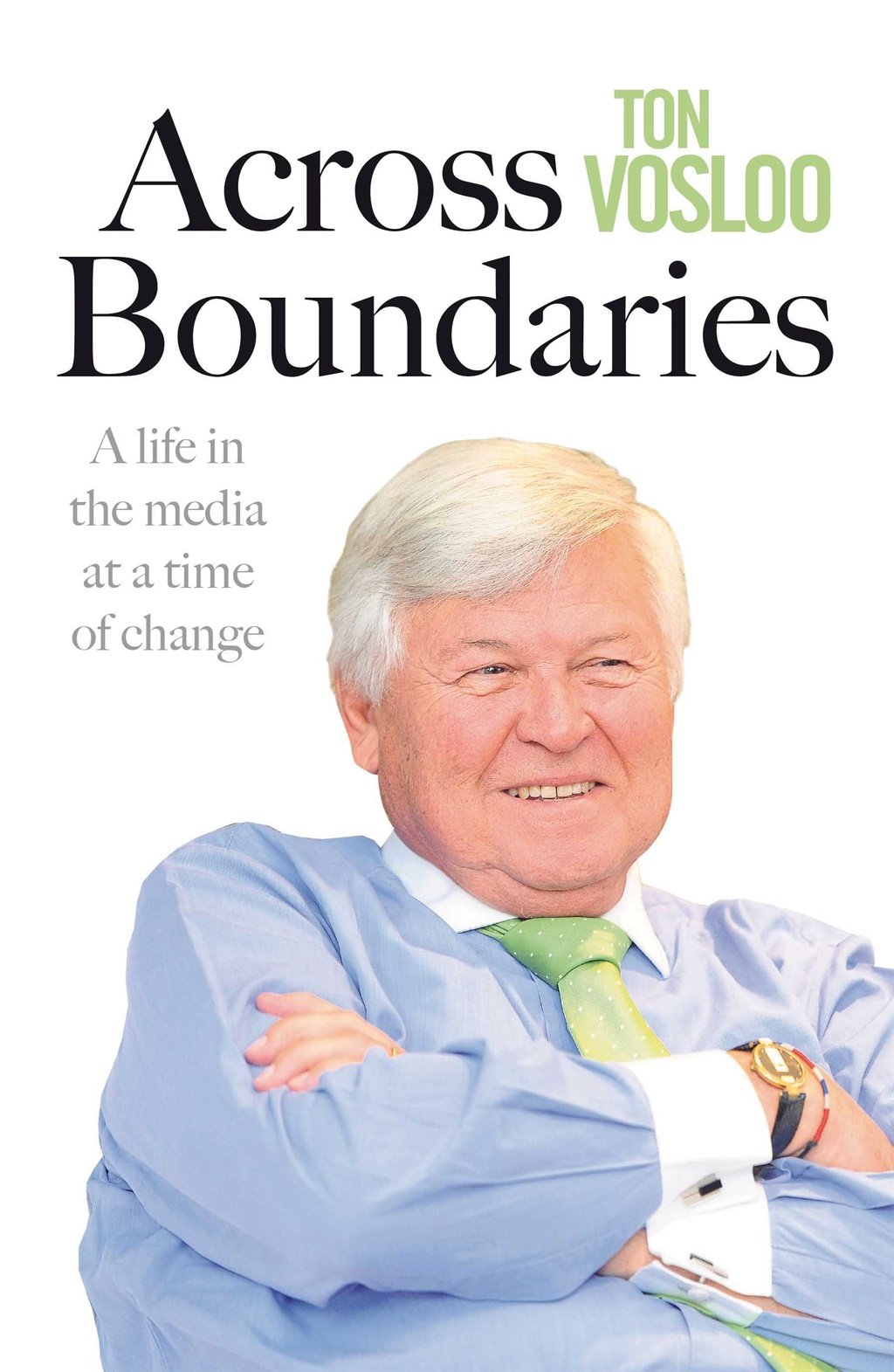
The acclaimed film Kanarie and play Die Reuk van Appels are two current examples of Afrikaner men contemplating the past. This is not just any past, but one of systematic dehumanisation in which they were particularly implicated.
They represented the public face of apartheid, while Afrikaner women were on the home front, doing the dirty work of socialising children into apartheid injustice. Thus, reading an autobiography written by a power broker of that era, one looks forward to some meaningfully critical reflection.
Visit News24's books section for the latest extracts, reviews and author interviews
Sadly, reconsideration is limited in Ton Vosloo's Across Boundaries – A Life in the Media in a Time of Change. It shares a title with the book Oor Grense Heen – Op pad na 'n nasionale pers 1948 – 1990 (Across boundaries – On the way to a national press). Covering the apartheid-era history of Nasionale Pers, or Naspers, it was submitted in 1997 to the Truth and Reconciliation Commission (TRC) when the company decided not to appear before the commission.
That decision, as Vosloo acknowledges, was largely his as executive chairperson at the time. Working journalists then in the employ of the company (I counted among them) argued for an evaluation of its contribution to apartheid. Especially the younger journalists wanted clarity on how our employer saw its responsibility as a media company in a fledgling democracy, in light of its history of mobilising Afrikaners in the service of apartheid. But, in the end, we had to go it alone with 127 individual submissions to the TRC.
Since then Vosloo has singled out as disappointing this instance of independent thinking in the company, because it cast aspersions over its legacy. In the book he repeats the narrative in the unpublished manuscript Naspers 100: Chronicle of a company, its country and its world that reduces the journalists' action to something instigated by a few senior Beeld men. This is ironic, because the story falls back on the hierarchy that the younger journalists were defying. A number left the company at the time.
The book presents, in mostly a jovial register, the adventures of a coterie of men close to apartheid state power as part of the media wing of the Afrikaner nationalist volksbeweging (people's movement) that installed the NP in government in 1948. Vosloo rose in the ranks from the 1970s, occupying key posts as editor of Beeld, managing director of Nasionale Pers and, later, executive and non-executive chairperson.
He oversaw the shift after 1994 when Naspers morphed into a multinational e-commerce company through the currently dominant capitalist practice of acquisitions. The core print media business shrunk to a mere 6%.
The book is a collection of anecdotes and snippets, rather than a chronological, factual account. The shifts among selected events make it difficult to trace editorial or company decisions at key historical moments.
The overall argument about the legacy is that Naspers used its powers of mobilisation to convince white voters to accept the political compromises of the 1990s. This the verligte (enlightened) Cape-based company did by defeating its verkrampte (reactionary) opponents Perskor and others in the former Transvaal in a "press war" that launched Naspers's increasingly monopolistic control of Afrikaans media.
READ: Media must be diligent about its independence - Ton Vosloo
While Vosloo also makes vast overstatements, such as that "the newspapers of the Press always offered dissenting voices the opportunity to be heard", his overall case is convincing. Indeed it is a legacy to be proud of, especially today in the face of a hardening form of whiteness.
However, it does beg questions: if the company through its access to the NP and its myriad media products could sway Afrikaner thinking to the extent of contributing to the democratic transition, how does Vosloo make sense of the use of that power before? What did it mean for journalistic ethics to be in an "embedded partnership", as he calls it, with the party of apartheid?
Vosloo offers a "reconsideration" of the TRC that sheds light: "apartheid, as implemented by the National Party, had degenerated into an inhumanly cruel policy". His company supported it for "too long", for which he apologises. While the revision of his position is to his credit, it does unfortunately come close to FW de Klerk's suggestion that apartheid was a good idea that went awry.
His view may explain the scant reference in the book to the brutalising and devastating methods of apartheid dispossession and violence against black people, and the related moral degradation of white people. The "political power struggle inside South Africa in the second half of the 20th century" does not refer to the anti-apartheid struggle in this book; it refers to the verligte-verkrampte tussle, also for Transvaal reader markets.
Vosloo's position may also clarify his favourable response to the editorial by Piet Cillié, former editor of Die Burger and his predecessor as chairperson, on Bram Fischer's death in 1975. He died having suffered great cruelty, such as the withholding of medical treatment for a broken femur in prison. Cillié described Fischer's ethical turning and life-long resistance against white supremacy as an attempt to be "fashionable" and to achieve Communist "martyrdom".
As late as the election year of 1987, three members of the company's upper echelon were purged. They were Dene Smuts, editor of Fair Lady (after a complaint from PW Botha about her publicity on anti-apartheid activists), Willem de Klerk, Afrikaner reformist and editor of Rapport (after questions about black political rights) and David de Villiers, company director (deviating from "the founding policy of Nasionale Pers… to support the National Party through the newspapers").
It seems that the verligte epithet that Vosloo claims in the book would be appropriate if the meaning of Willem de Klerk, who coined it, is applied: an open-mindedness that tends to pragmatism rather than principle. In this sense, apartheid had to come to an end not because it was wrong but because it was unsustainable.
Read an extract from Across Boundaries – A Life in the Media in a Time of Change.
- Prof Christi van der Westhuizen is the author of Sitting Pretty – White Afrikaans Women in Postapartheid South Africa and White Power & the Rise and Fall of the National Party.




 Publications
Publications
 Partners
Partners











